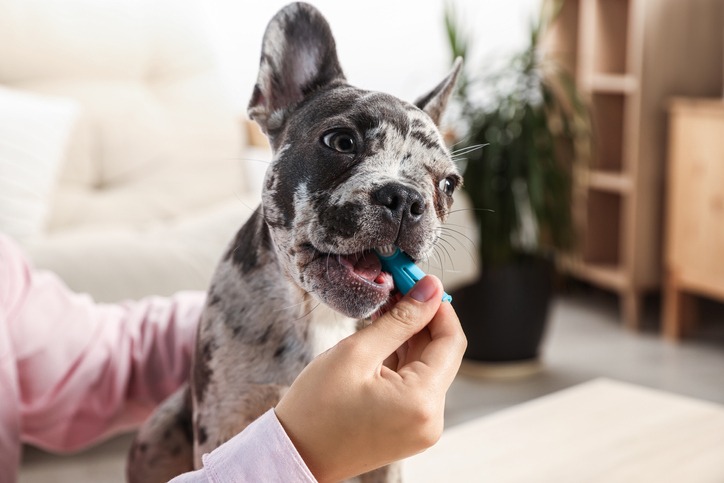Dog ownership comes with its fair share of novel challenges, from training to socialising, and grooming, and all those other little responsibilities that may take you by surprise. One of the most tricky challenges, however, tends to be caring for your canine companion’s pearly whites.
It’s been estimated that around 80% of dogs over the age of three have had or are actively tackling their own case of dental disease. If dental diseases are left unchecked, they can lead to severe gum infections that can potentially spread to other parts of your dog’s body, ultimately deteriorating their quality of life in the long term.
You can keep your dog safe from the dangers of dental disease by following the tips laid out in this article. Read on for all the ways you can keep your dog smiling well into their senior years.
Get a dental check-up
Funnily enough, there is such a thing as a ‘dog dentist’. They’re called veterinary dentists, and they specialise in diagnosing and treating common dental diseases found in both cats and dogs. Vet dentists can also correct chipped teeth, as well as performing tooth removals that may be required for advanced cases of canine periodontal disease.
You can schedule a dental check-up with your local vet or vet dentist just to make sure that your dog’s teeth are looking clean and healthy. If your dog is at risk of developing gum disease, your vet dentist will be able to provide you with more information on what you’ll need to do to keep those teeth clean at home.
Chances are they may recommend some of the tips that follow this preliminary one!
Brush their teeth daily
Not a lot of dogs are initially fond of having their teeth brushed. It is an awkward task to perform for dogs and owners alike, but there are ways that you can get your dog acclimated to this healthy habit in order to make it a fixture of their daily routine.
You can prepare your dog for daily teeth cleaning simply by making the process as comfortable as possible. This means using a vet-approved toothbrush with vet-approved toothpaste for starters. Using a human toothbrush or other teeth cleaning products can actually be uncomfortable or even damaging to your dog.
If your dog doesn’t respond well to conventional-style toothbrushes, you can use a finger toothbrush, which may allow you to have more control and can help to keep any struggling pups from experiencing pain or doing damage during the teeth cleaning process.
Be sure to always reward your dog after every successful teeth cleaning as well. Take every opportunity to reinforce that this is a positive experience for them.
Provide dental treats or bones
If you feel like giving your dog a treat right after a teeth cleaning is counter-productive, you’ll be glad to hear that you’re actually quite right, and we don’t endorse giving your pup any old mouth-watering treats.
You should always aim to reward your pup with dental treats like mint bones, rawhides and other treats that are designed to keep their teeth and gums nice and clean. You can even get a bag of bones from your local butcher for your dog to chew on. Believe it or not, but giving your dog bones can be a fantastic way of keeping their teeth nice and clean, as the act of chewing on bones can actively remove plaque and tartar build-up in and around your canine’s chompers.
Maintain a healthy, balanced doggy diet
Finally, this wouldn’t be a complete guide to doggy dental care if we didn’t mention the benefits of maintaining a healthy, balanced diet for your furry companion. When it comes to nutrients, dogs need a varied source of proteins, carbohydrates, minerals, and vitamins. Some sources are undeniably better than others.
You can feed a dog quite well on a diet of unseasoned meats and dog-friendly vegetables like carrots, beetroot, broccoli, and sweet potato, amongst other heart-healthy foods. As a general rule, you should try to steer clear of starches or specific grains like wheat when it comes to preparing your dog’s meals. These foods can act as excess sugars in your dog’s diet, and can thus result in tooth decay and periodontal disease if this excess consumption is not rectified.
Caring for your dog’s teeth can feel like a bit of a chore at the worst of times, but it is a responsibility that’s well worth taking seriously. If you’re able to train your dog to stay calm during their daily teeth cleaning and provide your pup with a wealth of nice bones for them to chew on, chances are their teeth will be clean and healthy well into their senior years.
Stay ahead of gum disease by being proactive about your dog’s dental health!

